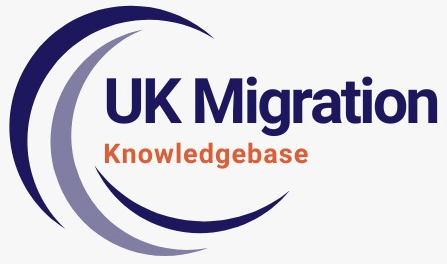Table Of Contents:
- What Are the Changes Being Made
- Changes to Appendix Continuous Residence
- Changes to Appendix Long Residence
- Changes to Appendix Private Life
- Changes to Appendix International Armed Forces and International Civilian Employees
- EU Settlement Scheme (EUSS): Changes to the continuous qualifying period definition
- Part 9: Changes to make refusals of applications
- Other Minor Changes

On 24 June 2025, the Home Office laid EXPLANATORY MEMORANDUM TO THE STATEMENT OF CHANGES IN IMMIGRATION RULES (HC 836) before the Parliament. In this document, changes are being made to regulate people’s entry to, and stay in, the UK.
What Are the Changes Being Made?
THE STATEMENT OF CHANGES IN IMMIGRATION RULES (HC 836) mentioned changes being made to the following:
- Appendix Continuous Residence
- Appendix Long Residence
- Appendix Private Life
- Appendix International Armed Forces and International Civilian Employees
- EU Settlement Scheme (EUSS): Changes to the continuous qualifying period definition
- Part 9: Changes to make refusals of applications or cancellation of permission mandatory for people excluded from asylum or humanitarian protection, or non-refoulement
These changes will be implemented on various dates from 16 July 2025.
Changes to Appendix Continuous Residence (Effective 29 July 2025)
After the changes are made to for long residence applications, the Home Office will, in future, treat a person spending time with permission, on a route equivalent to those in the UK, in the Crown Dependencies (the Isle of Man, Jersey and Guernsey), as their lawful presence in the UK.
Changes to Appendix Long Residence (Effective 29 July 2025)
The qualifying period requirements for applications based on long residence are being revised to clarify that a person who has spent time as a British citizen is considered to have lawful presence, except where the person has subsequently been deprived of their British citizenship, for example, due to deception used to obtain citizenship. A person who has been deprived of their British citizenship should not be able to count that time as lawful presence for the purposes of long residence.
Changes to Appendix Private Life (Effective 29 July 2025)
The changes now being made allow young people to settle after 5 years if they were granted lawful permission in the UK based on their family or private life before 20 June 2022 and if they meet the half-life test on the date of application or met it in a previous application. Meeting the half-life test means a person is aged between 18 and 25 at the date of application, arrived in the UK before the age of 18, and has spent at least half of their life continuously in the UK.
Children who have lived in the UK for seven years will also be able to qualify for settlement after five years.
Changes to Appendix International Armed Forces and International Civilian Employees (Effective 17 July 2025)
With changes to the Immigration rules for the International Civilian Employees group, approximately 50 US Department of Energy federal employees and civilian subcontractors will be allowed to come to the UK with a single 60-day permission at the UK border to work on US military equipment and to be recognised as civilian employees of an International Force.
EU Settlement Scheme (EUSS): Changes to the continuous qualifying period definition (Effective 16 July 2025)
From January 2025, where possible, eligible Pre-settled status holders will automatically be converted to settled status. Others with pre-settled status can apply for settled status.
Changes will be made to the continuous residence rule for EU, other European Economic Area, and Swiss citizens holding pre-settled status under the EU Settlement Scheme. They will now be able to be granted settled status where they have been resident in the UK for at least 30 months in total in the most recent 60-month period. This can be any 30 months within that 60-month period.
These changes will apply under the automated process as well as where pre-settled status holders apply for settled status.
Part 9: Changes to make refusals of applications or cancellation of permission mandatory for people excluded from asylum or humanitarian protection or non-refoulement (Effective 16 July 2025)
The amendments will be made to part 9 to ensure that people excluded from protection are not granted permission in other immigration categories.
These changes will amend Part 9.5.1 of the Immigration Rules. After the amendment, the Home Office must refuse a person’s application for entry clearance, permission to enter, or permission to stay who is excluded from asylum or humanitarian protection or non-refoulement.
These changes will also amend Part 9.5.2 of the Immigration Rules. After the amendment, the Home Office must cancel a person’s entry clearance or permission that was excluded from asylum or humanitarian protection, or non-refoulement.
Other Minor Changes
Changes to ETA
It will make clear that passengers whose nationality appears on the ETA national list will require an ETA for local journeys being made from the Republic of Ireland to the UK.
Non-visa nationals who do not hold any pre-existing leave to enter or remain in the UK, who enter the UK from Ireland across the land border, must obtain an ETA now.
Correction to the relationship requirements for dependent partners in the Appendix Student and the Appendix Graduate
The new wording says a dependant partner’s application will be refused if the main applicant’s Student or Graduate visa application is refused, which is the case on other UK points-based system routes.
This change will align the relationship requirement for the dependent partner of a Graduate and the Student route with that of the other Points-Based System routes.
Appendix FM-SE – changes to which previous English Language test certificates can be used as evidence
Under the new rules, an applicant may also rely on a previous B1 level Secure English Language Test taken, where the Home Office has already accepted it as part of a successful previous application in any visa category.
